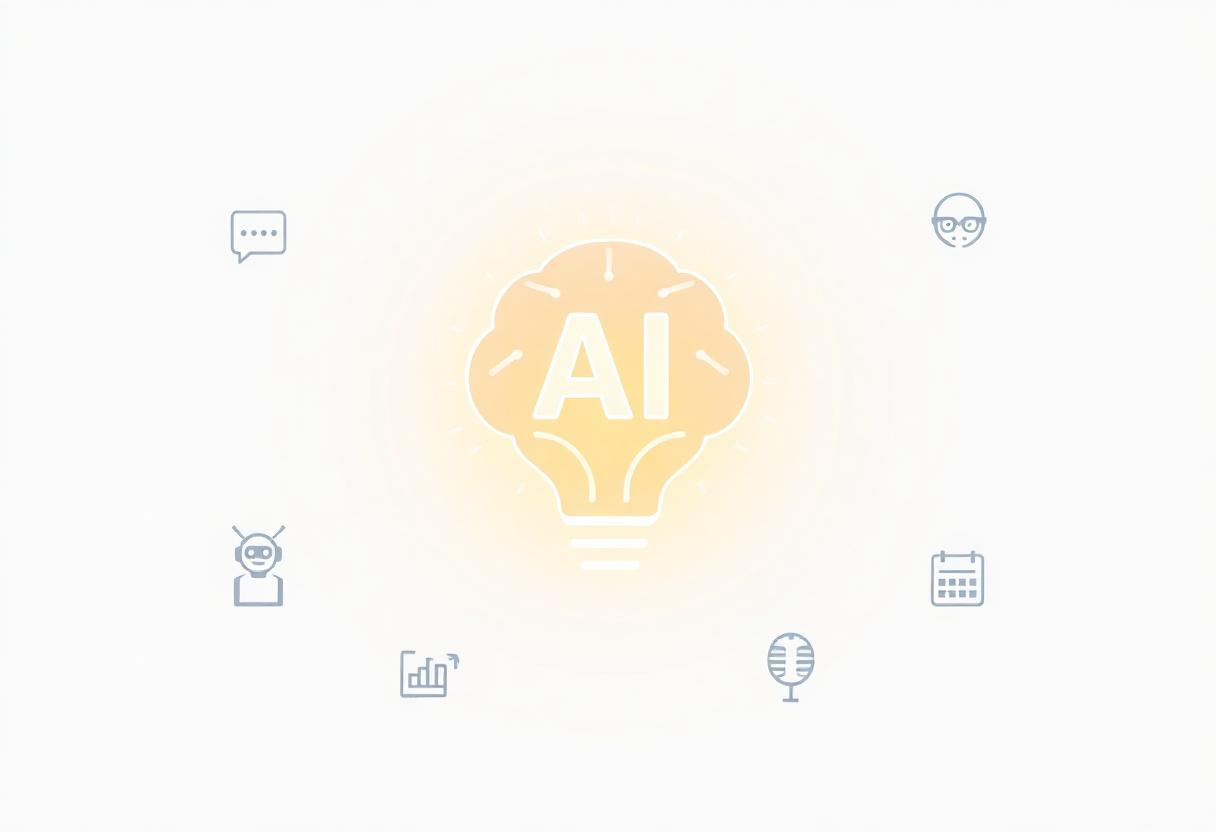The use of artificial intelligence (AI) in event planning and management is rapidly growing, revolutionising complex processes from promotion to analysis. This article presents 25 strategies for harnessing AI in events, including personalised event recommendations, data-driven planning, agenda and speaker biography creation, and promotional content generation. AI can also enhance attendee experiences through chatbots, facial recognition, and translated content. Furthermore, it offers tools for predictive analytics and post-event reporting, enabling organisers to optimise operations and increase engagement.
Enjoy:
- Over 60 AI tools to create quality content
- More time for creativity, stress-free
- Impactful content that attracts readers and visitors
All with just one click.
With AI, events can become more efficient and engaging, making technology a valuable ally for event success.
Personalised Experiences: Crafting Tailored Event Journeys with AI
Crafting tailored event journeys with AI allows for personalised experiences that enhance attendee engagement and satisfaction. By harnessing the power of artificial intelligence, event planners can create unique and customised experiences for each participant. AI algorithms can analyse attendee data, such as preferences, interests, and past interactions, to suggest personalised event recommendations and content. From suggesting relevant sessions and speakers to providing targeted promotional materials, AI enables organisers to curate a highly individualised event experience. This level of personalisation not only increases attendee satisfaction but also fosters a deeper connection between participants and the event, ultimately leading to greater engagement and a more memorable event.
Data-Driven Planning: The Future of Agenda and Speaker Management
Data-Driven Planning: The Future of Agenda and Speaker ManagementIn the realm of event planning, data-driven planning is revolutionizing the way agendas and speaker management are approached. By harnessing the power of artificial intelligence (AI) and data analytics, event organizers can now make informed decisions based on real-time insights and trends. AI algorithms can analyze attendee preferences, past event data, and industry trends to suggest the most relevant and engaging agenda items. Additionally, speaker management can be streamlined with AI-powered tools that match speakers with specific topics and audience demographics. This data-driven approach not only ensures a more tailored and dynamic event experience but also allows organizers to optimize their resources and maximize audience engagement. The future of agenda and speaker management lies in the hands of AI, providing event planners with invaluable tools for success.
Beyond the Event: Leveraging AI for Predictive Insights and Post-Event Success
Leveraging AI for predictive insights and post-event success goes beyond the actual event itself. With the power of AI, event organizers can analyze data collected before, during, and after the event to gain valuable insights. By using machine learning algorithms, they can predict attendee behavior, preferences, and trends, enabling them to make informed decisions for future events. Additionally, AI can assist in generating comprehensive post-event reports that provide a deep understanding of the event’s success metrics, attendee feedback, and areas for improvement. This allows organizers to refine their strategies and optimize future events, ensuring continuous growth and engagement. By harnessing AI for predictive insights and post-event analysis, event organizers can enhance their decision-making processes and ultimately achieve greater success.
As the use of AI in event planning and management continues to evolve, the potential for transformative impact becomes evident. From personalized experiences to data-driven planning and predictive insights, AI offers a wide range of possibilities for enhancing event engagement. However, as we embrace these cutting-edge technologies, it is crucial to consider the ethical implications and ensure that human interaction and creativity are not compromised. How can we strike the right balance between harnessing AI’s capabilities and preserving the essence of human connection in events?
